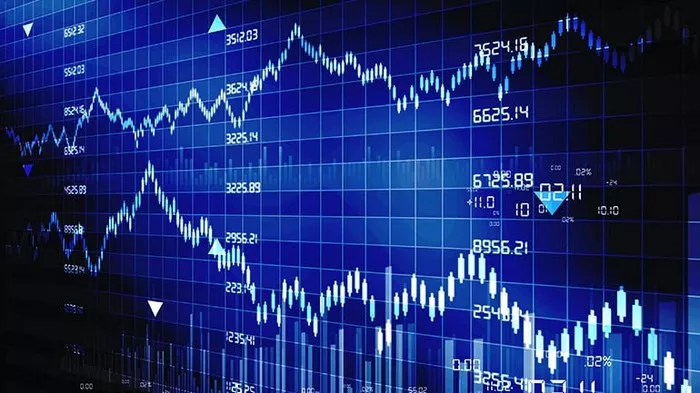In the world of financial markets, futures index contracts play a significant role in providing investors with opportunities for risk management, speculation, and portfolio diversification. Futures indices are derivative contracts that enable market participants to gain exposure to a specific index, representing a basket of underlying stocks or other assets. In this article, we will delve into the concept of futures indices, their uses, and their importance in the global financial landscape.
Understanding Futures Indices
-
Derivatives and Futures Contracts
Before diving into futures indices, it is essential to understand the concept of derivatives and futures contracts. Derivatives are financial instruments whose value is derived from an underlying asset or benchmark. Futures contracts are a type of derivative that obligates the parties involved to buy or sell the underlying asset at a predetermined price and date in the future.
-
Indices as Underlying Assets
An index is a statistical measure used to represent the performance of a specific group of stocks, bonds, commodities, or other assets. Popular indices include the S&P 500, Dow Jones Industrial Average (DJIA), Nasdaq Composite, and FTSE 100. These indices serve as benchmarks for various sectors or overall market performance.
-
Futures Contracts on Indices
Futures index contracts are standardized agreements that allow investors to buy or sell an index at a future date, with the contract terms predetermined. These contracts are traded on futures exchanges, providing participants with a regulated marketplace for buying and selling futures index positions.
Uses and Significance of Futures Indices
-
Risk Management
Futures indices are widely used by institutional investors, portfolio managers, and traders to manage risk exposure. By taking positions in futures contracts on indices, investors can hedge against potential losses in their portfolios. For example, if an investor holds a significant amount of stocks, they may take a short position in futures index contracts to protect against a decline in the overall market.
-
Speculation
Futures indices offer opportunities for speculators to profit from price movements in the underlying indices without owning the individual stocks. Traders who anticipate the direction of the market or a particular sector can take long or short positions in futures index contracts to capitalize on their predictions.
-
Portfolio Diversification
Including futures index contracts in a portfolio can help diversify risk and reduce exposure to specific stocks or sectors. By gaining exposure to an entire index, investors can spread their risk across multiple stocks and industries, potentially mitigating the impact of individual stock performance.
-
Liquidity and Efficiency
Futures indices provide a highly liquid market for trading. The standardized nature of futures contracts and the active participation of market participants make it easier to buy or sell positions quickly and efficiently. This liquidity ensures that investors can enter or exit positions with minimal impact on market prices.
-
Price Discovery
Futures indices contribute to price discovery, which is the process of determining the fair value of an underlying asset. The continuous trading and price movements of futures contracts on indices reflect the market’s expectations and sentiment regarding the future performance of the underlying stocks or assets. These price signals can be valuable for investors and market participants in assessing market trends and making informed investment decisions.
Trading and Mechanics of Futures Indices
-
Contract Specifications
Each futures index contract has specific contract specifications, including the underlying index, contract size, tick size (minimum price fluctuation), expiration date, and settlement method. Understanding these specifications is crucial for trading futures indices effectively.
-
Margin and Leverage
Futures indices involve trading on margin, which means that only a fraction of the contract’s total value is required as collateral. This allows investors to amplify their trading positions through leverage. However, it’s important to note that leverage magnifies both potential gains and losses, so risk management is vital.
-
Rolling Over Contracts
Futures contracts have expiration dates, and traders need to manage their positions as the contract approaches maturity. To avoid physical delivery of the underlying assets, most traders roll over their contracts by closing their current positions and opening new ones with a later expiration date.
Regulation and Risk Considerations
-
Regulatory Oversight
Futures exchanges and futures indices are subject to regulatory oversight to ensure fair and transparent trading practices. Regulatory bodies, such as the Commodity Futures Trading Commission (CFTC) in the United States, supervise futures markets and enforce rules to protect investors and maintain market integrity.
-
Volatility and Market Risks
Trading futures indices carries inherent risks, including market volatility, sudden price movements, and the potential for substantial losses. Traders and investors should carefully assess their risk tolerance, employ risk management strategies, and stay informed about market developments and factors that can impact the underlying indices.
Conclusion
Futures indices provide investors with a way to gain exposure to the performance of specific indexes, allowing for risk management, speculation, and portfolio diversification. These derivative contracts offer numerous benefits, including risk mitigation, efficient trading, and price discovery. However, they also come with risks and complexities that require careful consideration and understanding. As with any investment, thorough research, risk management strategies, and adherence to regulatory guidelines are essential when engaging in futures index trading.

